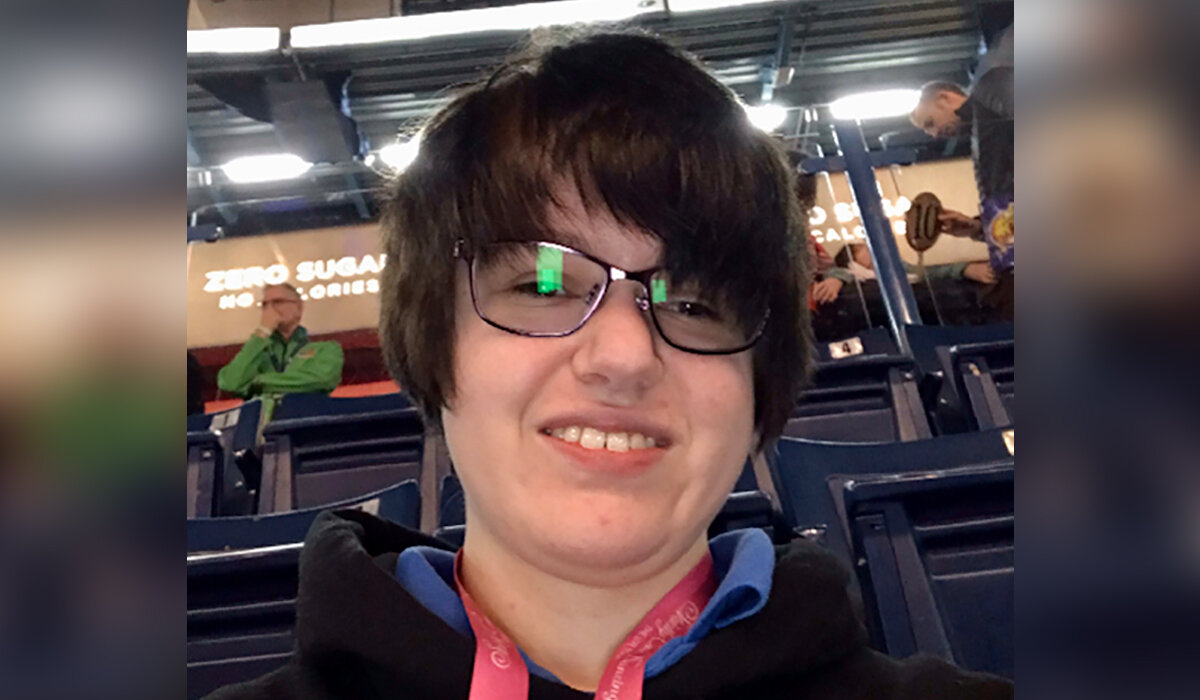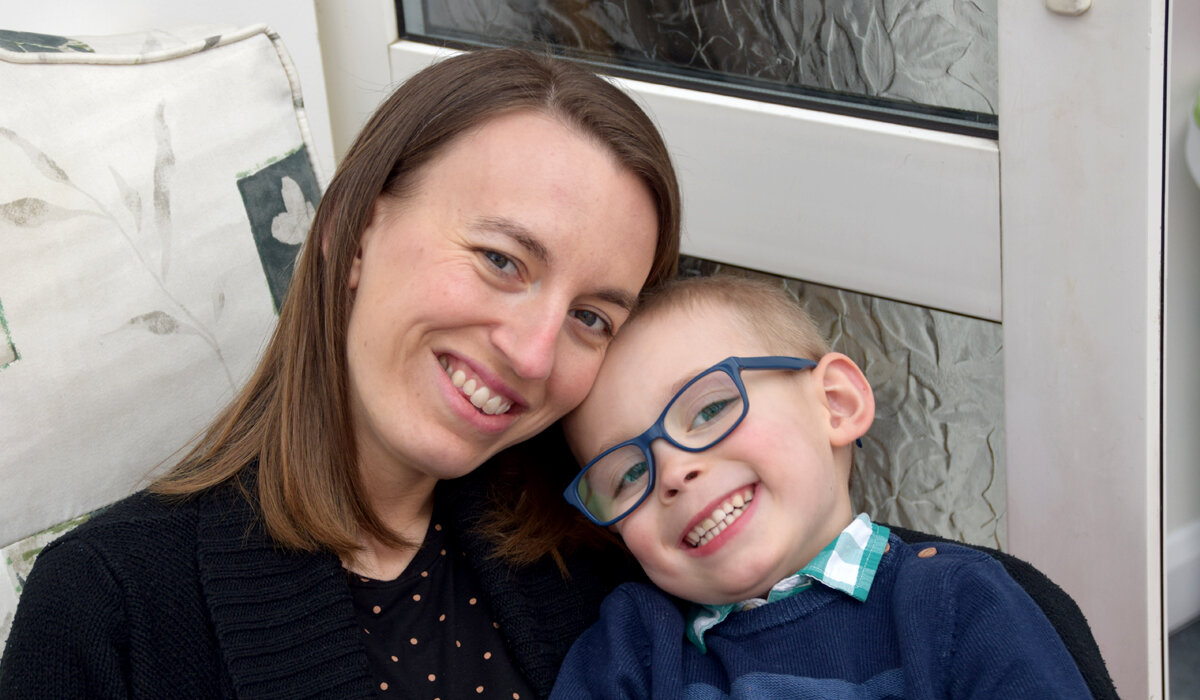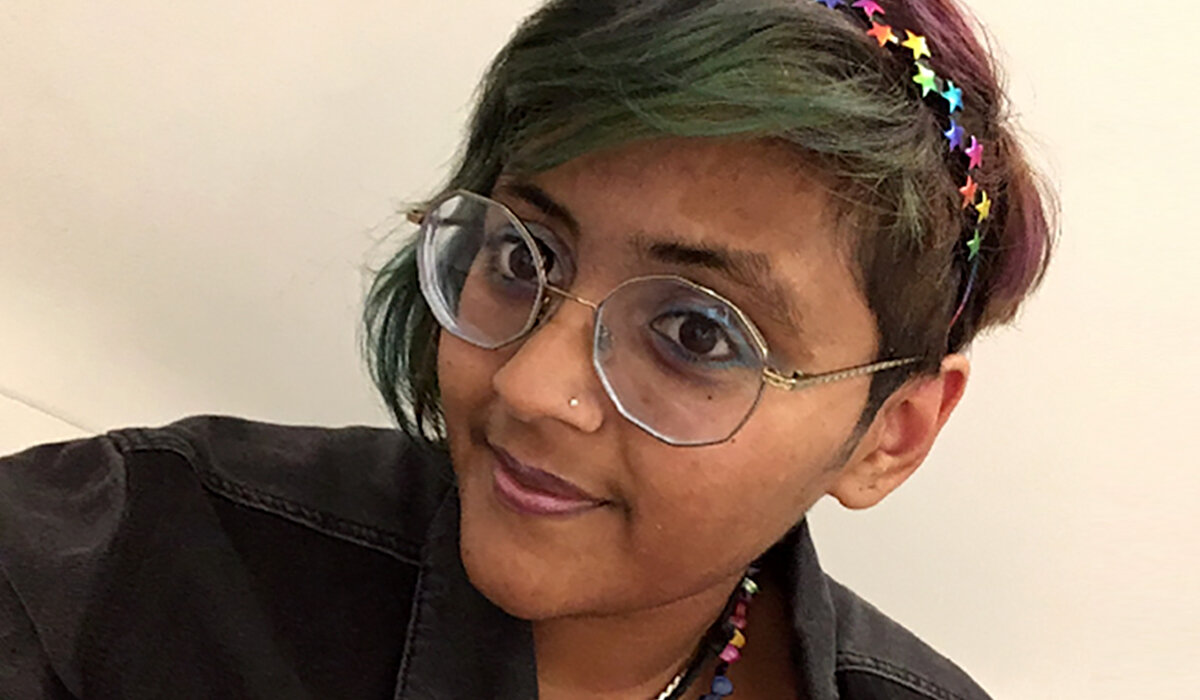
"Communication isn't something you are taught, yet you are expected to just know all the rules."
Molly Bradford
- on autism, communication, and unwritten social rules
Stories from the Spectrum: Molly Bradford
Meet Molly Bradford, autistic woman and Strictly Come Dancing super fan!
Last February, Molly was lucky enough to see the Strictly Come Dancing Live relaxed performance. Amy Dowden and AJ Pritchard were among the dancing stars who graced the stage that evening. Molly talked to us about being swept up in the Strictly magic, as well as the adjustments the show made to create an autism-friendly environment for its audience.
We also chatted to Molly about her autism diagnosis, the current lockdown, and how family, friends and members of the public can support autistic people during these uncertain times.
When were you diagnosed as autistic?
I was diagnosed when I was 16. At the time, my parents were worried about my behaviour. As a young child I had Selective Mutism and had always found it difficult to communicate with others (and still do). I withdrew to my room and I stopped going out.
My parents took me to CAMHS (Child and Adolescent Mental Health Services) and I was eventually diagnosed with autism. I think the reason I was diagnosed so late was because I masked my autistic behaviour a lot – especially outside the house (like in school) and then I let it all out when I was at home. That’s where I’m most safe.
What is being autistic like for you?
Being autistic is difficult for me as I really struggle to communicate with people. Communication isn’t something you are taught, yet you are expected to just know all the rules. I was very badly bullied all my life (secondary school was the worst), because I communicated differently from my peers. Eye contact is also hard. I find it really uncomfortable, perhaps because I lack confidence. I just don’t feel brave enough looking people in the eyes (even people I’m very close to). Being in large crowds of people is also difficult for me. I struggle to understand spoken communication, I much prefer things to be written down or in picture form.
Sensory issues are also a big problem for me. I find they get worse as I get older. Taste, texture and sound are the worst. Loud noises and bright lights are very scary for me. These sensory issues cause a few problems because I can't take medication or eat new or different foods. If it doesn't look right, I won't touch it. For example, if a chicken nugget is a different shape or if there is a dash of potato waffle on my other food, I won't eat it. I also won't wear anything tight. Socks, for instance, are a big problem! Who invented those?
I'm extra sensitive to pain and temperature. Like many people on the spectrum I have very high levels of anxiety. This has been the case since school, and I find my anxiety is generally worse at night.
I also take longer to process things than other people and I am often misunderstood. Even though I am 22-years-old I have the mind and feelings of a younger person. The hardest part of autism is the lack of understanding. All we want is to be accepted for who we are.
"Communication isn’t something you are taught, yet you are expected to just know all the rules."

You went to see the Strictly Come Dancing Live relaxed performance in February. What was that like and how did it differ from a regular performance?
It was amazing! I can’t put into words how happy that day made me. It truly meant everything to me. In terms of differences, the lights were dimmer and the music quieter. There weren’t any sudden loud bangs or any pyrotechnics. No scary moments. There were even breakout rooms for people to go to at any time. And volunteers were on hand to provide support. I really hope Strictly do it again!
What do you enjoy doing in your spare time?
I enjoy listening to music, making and playing with slime, watching YouTube and creating art. I have also recently got into playing Animal Crossing New Horizons on my Nintendo Switch Lite, which I love!
I am learning how to dance too. It was actually my idol Amy Dowden who gave me the confidence to start dancing. She’s my favourite Strictly pro. Watching her dance makes me so happy. Words can’t describe how happy I was when I saw her dance live for the first time at the Strictly Come Dancing Live relaxed performance, then again on her own tour, Lost in the rhythm. I was lucky enough to meet her. It was the best day ever.
How are you coping with the current lockdown and do you have any tips?
The situation is affecting my mental health, especially my anxiety and depression. The word “lockdown” scares me, although I can’t explain why. The worst thing about my anxiety over this situation is the fact that I can’t control it or make it go away.
My tip would be to try and distract yourself. You could listen to music, play games or watch cartoons. Do things that makes you happy. Reach out if you are struggling or need someone to talk to. Sticking to a routine is also very important. For instance, having set meal times and bed times could be helpful.
How can family, friends and members of the public support autistic people at this time?
Just be kind and supportive. I think the best thing you can do is just simply be there for autistic people. Let us know that we are loved and cared for. Understand that the feeling of anxiety and isolation we are all experiencing now is how many autistic people feel every single day.
We hope it won't be too long before theatres are able to open again and audiences can once again experience the magic of a live performance. If, like Molly, you are a Strictly fan, be sure to keep an eye on the Strictly Come Dancing website for any updates.
Similar stories

"The only thing I would change is a society that helps Ethan feel more supported."
Emma
- on supporting her autistic son
Read more

"I lose the ability to properly process or make sense of any incoming information, like the whole system has stopped."
Sumita Majumdar
- on sensory differences and meltdowns
Read more

The Spectrum magazine
Explore one of the UK's largest collections of autistic art, poetry, and prose. The Spectrum magazine is created by and for autistic people, and is available both online and in print.
Read the Spectrum





You are not alone
Join the community
Our online community is a place for autistic people and their families to meet like-minded people and share their experiences.
Join today